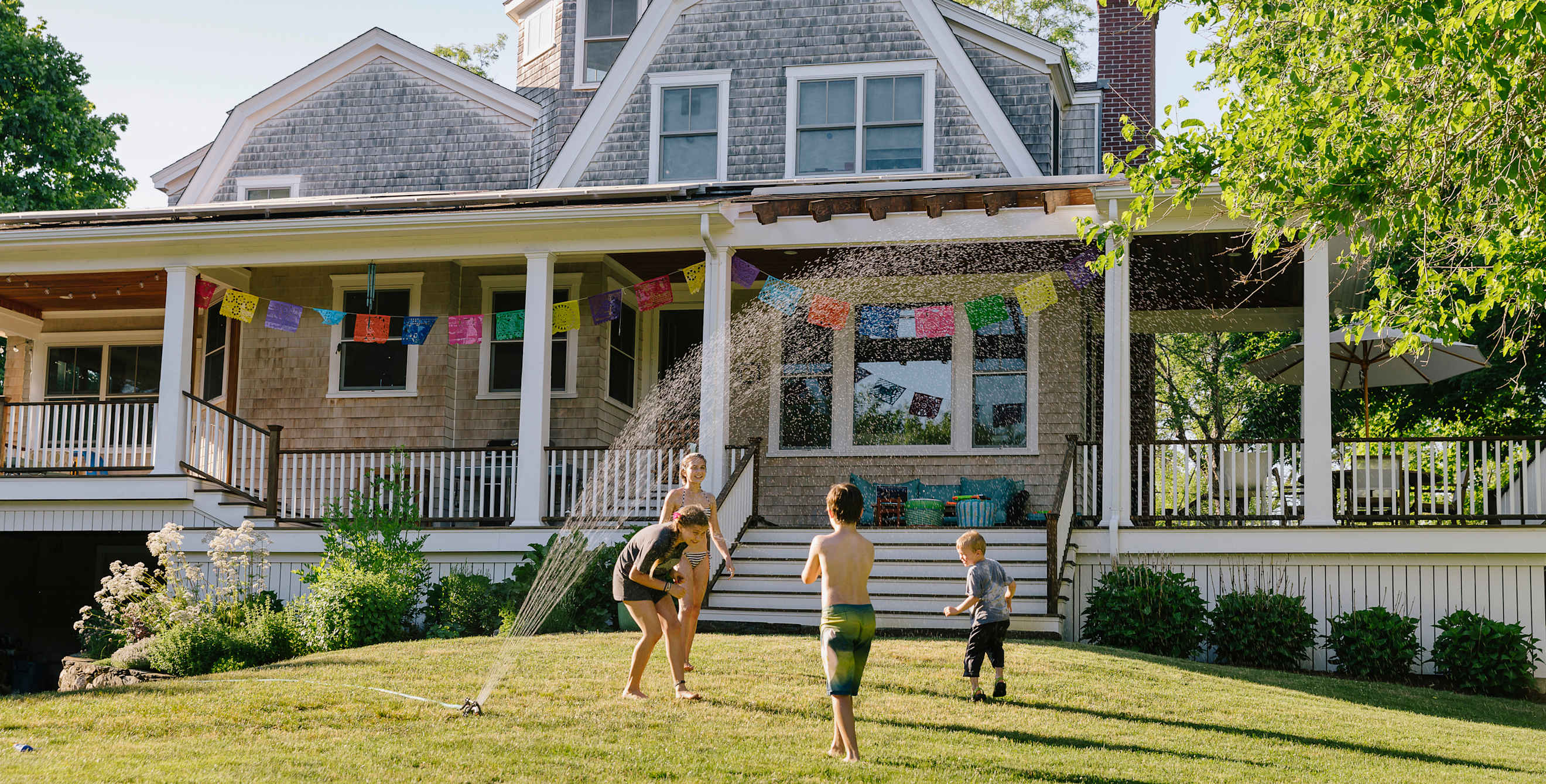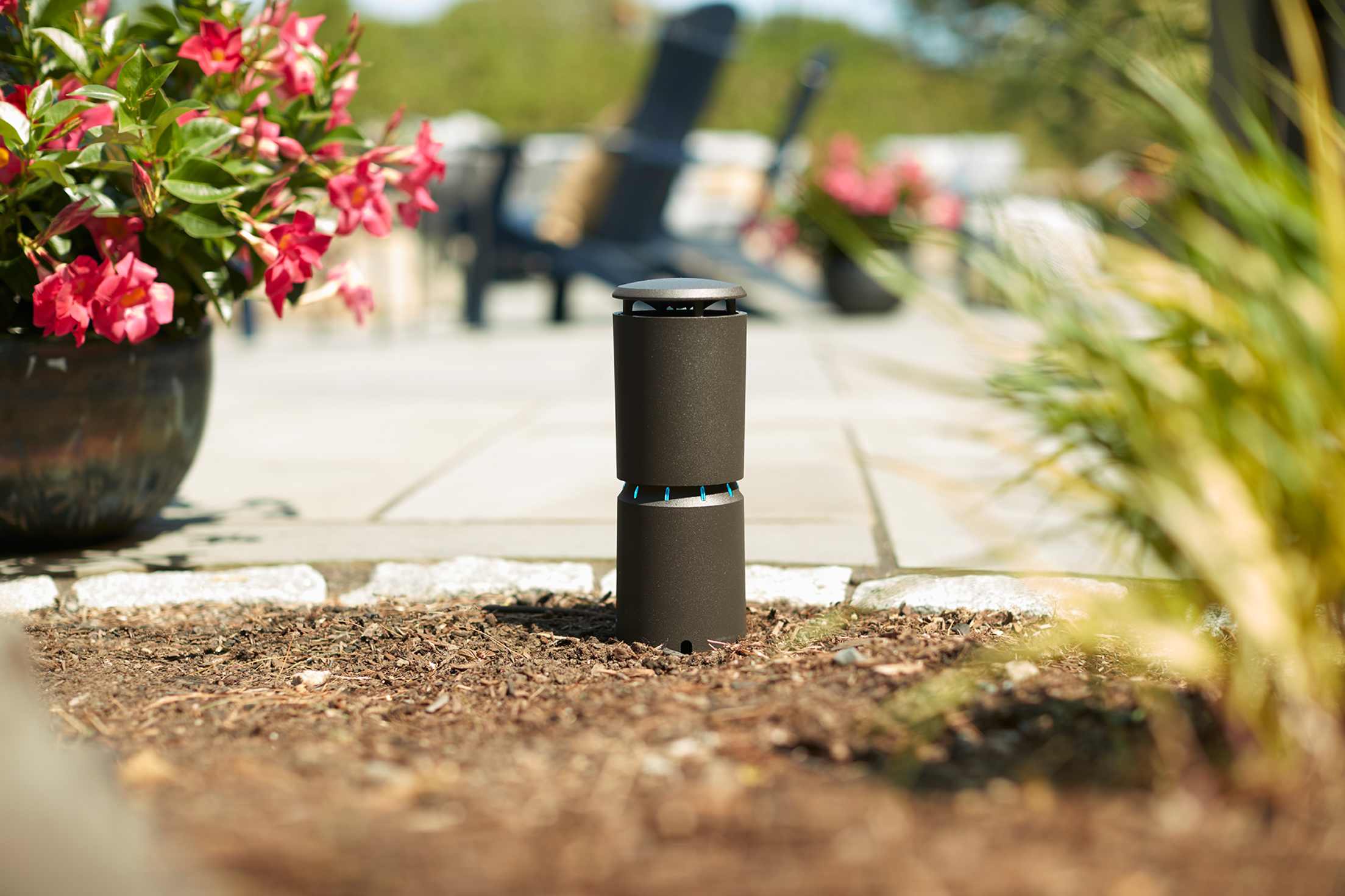
High-Tech Ways to Keep Mosquitoes Away
Get relief with these repellents and traps.

Humans aren’t the only ones that enjoy a bit of warmth. Bugs love it too, especially mosquitoes, which can make outdoor fun a lot less enjoyable.
Beyond being painful and itchy, mosquito bites also increasingly expose people to diseases, with mosquito-borne West Nile, encephalitis, malaria, and even dengue fever detected in the U.S. in recent years. West Nile has become particularly tenacious and can now be found in nearly every state. In 2023, over 2,500 cases were reported here, according to the CDC.
So, how do you keep these critters out of your yard and off your loved ones? It’s all about tenacity.
“Mosquitoes are a very intelligent and adept pest,” says Kyle Boureston, founder of MosGone Mosquito Control. “There is a proliferation of ineffective tips and tricks out there that will only minimally change the number of mosquito bites you get. One of the best ways to reduce mosquito bites is to control the mosquito life cycle.”
Here’s how to use the latest technology—and follow some longstanding basics—to get relief this summer.

Put up a barrier.
Mosquito control has typically started with a personal approach. Products like OFF! sprays use DEET and Picaridin, both don’t do anything to kill mosquitoes, but the chemicals have been scientifically proven to be effective at repelling them. Like most creatures, mosquitoes use their nose to find prey, and these chemicals cover up your natural human aroma with something that mosquitoes actively dislike. Both are considered very safe for human contact; DEET is especially well-vetted and has been in use for about 80 years.
More recently, companies have introduced technology that aims to repel mosquitoes from a larger area than just around a person’s body. Thermacell offers a DIY mosquito abatement solution called LIV. To use it, you connect a LIV Smart Hub to electrical power, then attach it to a perimeter of wire ringing the area you’d like to protect (like your pool or patio). Repeller units are placed about every 20 feet, each of which contains a small vial of an anti-mosquito chemical called metofluthrin. When the system is turned on, the repellers heat up the chemical, which creates an invisible bug barrier in the air. Metofluthrin kills mosquitoes, and they don’t like to be around it, so while the LIV system is on, you’re well protected. The LIV Smart Hub 2.0 and three to five repellers cost between $899 and $1,299, and consumables cost $250 for six metofluthrin pods, each with a 100-hour capacity.
Set up a trap.
What about old-fashioned electric bug zappers? Unfortunately these standby systems aren’t very effective against mosquitoes unless they include an attractant as mosquitoes just aren’t interested in fluorescent light the way other bugs are. The Flowtron Bug Zapper is available for about $70 and boasts coverage of up to an acre thanks to its attractant ($12 refills will last about 30 days).
Other options trap mosquitoes rather than zap them. Boureston’s MosGone Trap ($99 for four traps) is a passive trap system that simply uses water and essential oils to lure mosquitoes inside where they lay their eggs; once hatched, the bugs can’t escape, which thins the swarm over time. Mosquito Magnet offers a similar idea, but with a considerably more complex device. It uses power or a battery plus a propane tank to release attractants into the air, then it vacuums curious insects into a net. Starting at $400, it’s considerably more expensive than other trap solutions, but it does boast some impressive scientific testing results.
Don’t forget the basics.
Any anti-mosquito strategy needs to be complemented by some basic prevention tactics, namely ensuring that any nearby sources of standing water are dealt with.
“Homeowners’ most common sources of standing water are clogged gutters, plant pots and saucers, pet water bowls, bird baths, outdoor children’s toys, and grills,” Boureston says. “Consistently draining water in these and elsewhere in your yard will often dramatically reduce the number of mosquitoes you see.”
AAA Members save up to $60 per year on AAA Smart Home Security Monitoring.